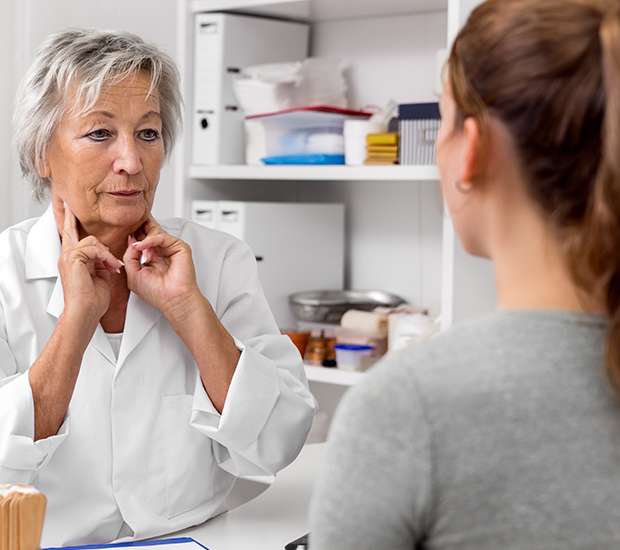Signs and Symptoms of MononucleosisFrisco, TX
An urgent care facility can get you fast relief from mononucleosis. Commonly called "the kissing disease" or the mono virus, this disease is caused by the Epstein-Barr virus, which is transmitted through saliva. There are also other viruses that can cause this infectious disease. It can be transferred via sharing utensils with an infected person, as well as coughing, sneezing, kissing or anything else that involves saliva being shared.
While mononucleosis is an infectious disease, it is not as contagious as the common cold. The infection often goes undiagnosed in young children because they rarely exhibit any symptoms. People who have been diagnosed with the mono virus should ensure they get plenty of rest and fluids since both are critical for recovery.
The most common signs and symptoms of mononucleosis include:
The virus that causes the kissing disease incubates for about four to six weeks. The incubation period is sometimes shorter if the patient is a child. Most of the symptoms should begin to clear up after a week, but certain symptoms, like a swollen spleen and fatigue, can last up to a month.
An urgent care center provides treatments that can bring relief to anyone dealing with any of the symptoms listed above. Medical treatment is even more critical if the person has already had several of these symptoms for over two weeks. Failing to get proper treatment can lead to certain complications.
Complications that can be avoided with urgent care treatment of mononucleosis
There are certain complications often associated with mononucleosis. These include:
1. An enlarged spleen
The mono virus can lead to an enlarged spleen. In extreme cases, it can even lead to a person's spleen becoming ruptured. That usually leads to the person feeling sharp pain coming from the upper left side of their abdomen. People who experience this should seek medical treatment at an urgent care center immediately.
2. Liver problems
There are certain liver issues that can be caused by the mono virus. These include:
3. Anemia
In rare cases, the kissing disease can lead to a decrease in the patient's hemoglobin and red blood cells.
Other rare complications that can be caused by mononucleosis include:
People who have weakened immune systems due to health issue like HIV/AIDS are more likely to develop complications when infected with the mono virus.
When urgent care is critical for mononucleosis
People who experience any of the following symptoms when infected with the mono virus should seek medical help immediately:
Preventing mononucleosis
Mononucleosis is spread through saliva, so people who are infected can help prevent the spread of the virus by not kissing others or sharing cups, dishes, glasses and food until they have stopped feeling feverish at the very minimum. Doctors recommend doing it for a longer period of time since it is possible for the Epstein-Barr virus to remain in an infected person's saliva for months after the initial infection.
There is currently no vaccine that can be used to prevent mononucleosis, but most adults who have been exposed to it build up immunity and are unlikely to be re-infected in the future.
Treatments commonly used to deal with mononucleosis
When a patient walks into an urgent care facility for treatment, the first thing the doctor will do is make a proper diagnosis. The mono virus shares some of its symptoms with other common diseases, so it is essential that the patient is properly evaluated.
The doctor typically does this by conducting a physical examination. A throat culture may be done to ensure that the patient does not have strep throat, which has similar symptoms. The doctor might also perform blood tests to look for any irregular white blood cells, or a heterophile test might be performed to evaluate the patient's immune system.
Once the disease has been properly diagnosed, treatment commences.
The goals of the treatments are to alleviate the symptoms of the disease and to treat any complications that develop. The doctor may prescribe medication to reduce the discomfort caused by some of the symptoms of the mono virus, like a sore throat or a fever.
Recovering from the mono virus
Most people who are exposed to the virus that causes the kissing disease begin to recover after about two weeks. However, it can take longer for others to recover, depending on the symptoms they are experiencing. Rest goes a long way when it comes to recovering from mononucleosis, and staying well hydrated is just as important.
Do not wait for treatment
There is no need to wait for weeks to see your doctor or to spend hours in the waiting room of an emergency room when dealing with mononucleosis. An urgent care center does not require an appointment, and patients can often see a doctor shortly after they arrive.



